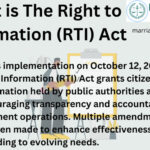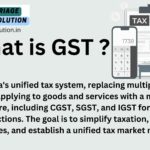Article 35 A
Article 35A is a provision in the Indian Constitution that grants the Jammu and Kashmir legislature the power to define the permanent residents of the state and confer special rights and privileges upon them. This article was inserted through the Constitution (Application to Jammu and Kashmir) Order, 1954. The order, issued by President Rajendra Prasad under Article 370, was based on the advice of the Nehru-led Union Government. The primary purpose of Article 35A is to define the criteria for permanent residency in Jammu and Kashmir and outline the special rights and privileges associated with it.

Historical of Article 35A
- Accession of Jammu and Kashmir:
- In 1947, Maharaja Hari Singh, the ruler of Jammu and Kashmir, faced a dilemma during the partition of India. While the majority of his subjects were Muslims, he was a Hindu ruler.
- Instrument of Accession:
- In October 1947, Maharaja Hari Singh signed the Instrument of Accession, acceding the state to the Dominion of India, allowing India to assist in repelling an invasion by tribal forces from Pakistan.
- Special Autonomy:
- To address the unique circumstances of Jammu and Kashmir, Article 370 was incorporated into the Indian Constitution in 1949. It granted the state a special autonomous status, allowing it to have its own constitution and decision-making powers, except in matters of defense, foreign affairs, finance, and communications.
- Addition of Article 35A:
- In 1954, through a Presidential Order, Article 35A was inserted into the Constitution. This article granted the Jammu and Kashmir State Legislature the power to define ‘permanent residents’ of the state and provide them with special rights and privileges.
- Definition of Permanent Residents:
- The state legislature defined permanent residents and granted them exclusive rights over property, government jobs, and other privileges. Non-permanent residents, including refugees who came from Pakistan during the 1947 partition, were excluded from these benefits.
- Controversies and Criticisms:
- Article 35A became a contentious issue over the years, with criticisms about its discriminatory nature and challenges to its constitutional validity.
- Abrogation in 2019:
- In August 2019, the Indian government, led by Prime Minister Narendra Modi, abrogated Article 370 and, consequently, Article 35A. This move led to the reorganization of Jammu and Kashmir into two separate Union Territories: Jammu & Kashmir and Ladakh.
Difference between Article 35A and Article 370.
| Feature | Article 35A | Article 370 |
| Introduction | Added in 1954 | Enacted in 1949 |
| Authority | Defines the status of permanent residents in Jammu and Kashmir | Grants special autonomy to Jammu and Kashmir |
| Origin | Issued through the Constitution (Application to Jammu and Kashmir) Order | Part of the original Constitution of India |
| Inclusion in Constitution | Added after Article 35 | Part of the initial provisions |
| Issuing Authority | President Rajendra Prasad under Article 370 | Constituent Assembly of India |
Article 35A in Jammu and Kashmir:
Article 35A grants the Jammu and Kashmir legislature the authority to define the status of permanent residents in the state.
Article 35A Overview:
Authority Granted:
Article 35A empowers the Jammu and Kashmir legislature to determine the status of permanent residents in the state.
Origin and Insertion:
It was introduced through the Constitution (Application to Jammu and Kashmir) Order in 1954. President Rajendra Prasad issued the order under Article 370, following the advice of the Nehru-led Union Government.
Definition of Permanent Resident (1956 Constitution) :
A permanent resident, as defined in the J&K Constitution of 1956, includes someone who was a state subject on May 14, 1954, or a person residing in the state for 10 years with lawfully acquired immovable property.
More information about Article 370
- AFSPA Act
 AFSPA act mean Armed Forces Special Powers Act (AFSPA) grants special powers to the Indian Armed Forces in areas classified as “disturbed” due to significant insurgency or internal disturbances.
AFSPA act mean Armed Forces Special Powers Act (AFSPA) grants special powers to the Indian Armed Forces in areas classified as “disturbed” due to significant insurgency or internal disturbances. - Right to Information RTI act :Your Comprehensive Guide (Part 1)
 The Right to Information (RTI) Act : Explore the essence of the Right to Information (RTI) Act through this symbolic image. The image features legal documents, emphasizing the importance of transparency and accountability in governance. The scales of justice represent the balance achieved through the citizens’ right to access information.
The Right to Information (RTI) Act : Explore the essence of the Right to Information (RTI) Act through this symbolic image. The image features legal documents, emphasizing the importance of transparency and accountability in governance. The scales of justice represent the balance achieved through the citizens’ right to access information. - What is Article 371 of Indian Constitution ?Article 371 of the Indian Constitution grants special provisions to specific states and regions within India, addressing their unique historical, social, and cultural circumstances. These provisions aim to accommodate diverse needs and protect cultural identities within the constitutional framework.
- Indian Labour law : Your Comprehensive Guide (Part 1)
 The purpose of labour laws is to safeguard employees and guarantee equitable treatment at the workplace, encompassing aspects such as remuneration, security, and perks. These regulations establish a secure ambiance by imposing minimum wage requirements, ensuring factory safety measures are implemented effectively while granting rights like maternal leave entitlements. Abiding by these principles promulgates an impartial work culture encapsulating upright conduct; thereby cultivating conducive surroundings for progressive development.
The purpose of labour laws is to safeguard employees and guarantee equitable treatment at the workplace, encompassing aspects such as remuneration, security, and perks. These regulations establish a secure ambiance by imposing minimum wage requirements, ensuring factory safety measures are implemented effectively while granting rights like maternal leave entitlements. Abiding by these principles promulgates an impartial work culture encapsulating upright conduct; thereby cultivating conducive surroundings for progressive development. - GST :Your Comprehensive Guide (Part 1 – Understanding the Basics)
 The Goods and Services Tax (GST) is like a big change in how we pay taxes in India. It started on July 1, 2017, and it’s here to simplify things. Before GST, we had many different taxes, and it could get confusing. Now, with GST, it’s like combining all those taxes into one. The idea is to make taxes more straightforward, clear, and fair for everyone. It applies to almost everything we buy or sell, and it’s helping India’s businesses and economy work better together. So, GST is not just a tax change; it’s a step towards making things simpler and better for all of us.
The Goods and Services Tax (GST) is like a big change in how we pay taxes in India. It started on July 1, 2017, and it’s here to simplify things. Before GST, we had many different taxes, and it could get confusing. Now, with GST, it’s like combining all those taxes into one. The idea is to make taxes more straightforward, clear, and fair for everyone. It applies to almost everything we buy or sell, and it’s helping India’s businesses and economy work better together. So, GST is not just a tax change; it’s a step towards making things simpler and better for all of us.
If you require assistance with court or any other Cases.
court or any other marriage-related issues, our Home – MarriageSolution.in: Your Trusted Partner in Family Legal Matters. Law Services, IPC Section blog, Expert Advice, court cases lawyer help. website may prove helpful. By completing our enquiry form and submitting it online, we can provide customized guidance to navigate through the process effectively. Don’t hesitate to contact us for personalized solutions; we are here to assist you whenever necessary!
